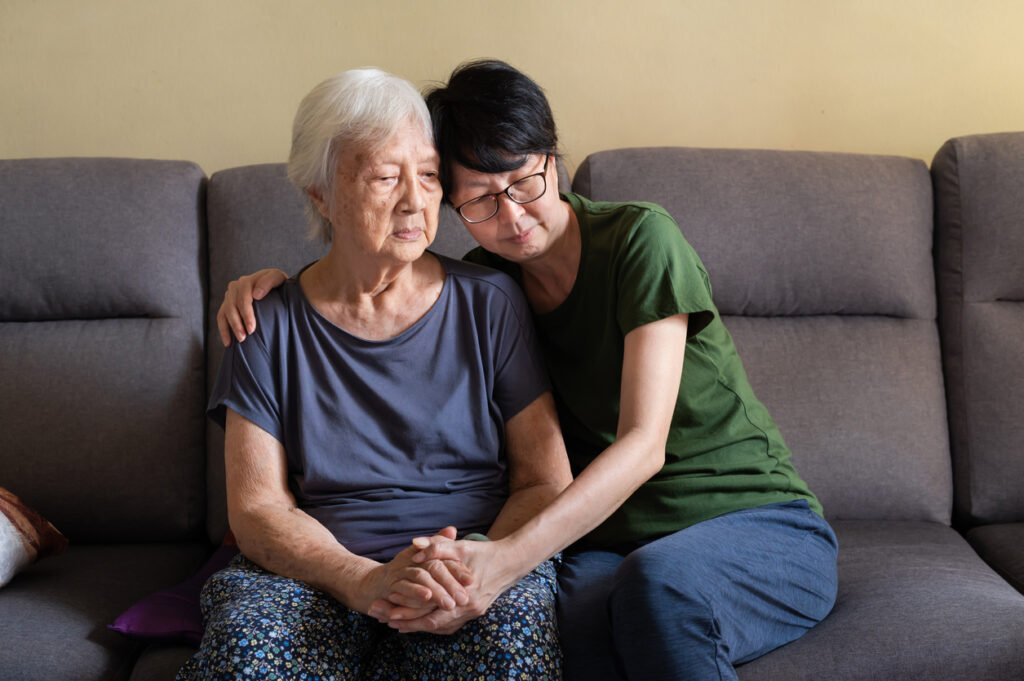 If you’re grieving on Mother’s Day and or Father’s Day, know that you are not alone. These special days may be especially difficult for children or adults who have lost a parent or other important caregiver. Likewise, for parents who have experienced the death of a child, anticipation of Mother’s and Father’s Day, and managing the days themselves, may weigh heavy on the heart.
If you’re grieving on Mother’s Day and or Father’s Day, know that you are not alone. These special days may be especially difficult for children or adults who have lost a parent or other important caregiver. Likewise, for parents who have experienced the death of a child, anticipation of Mother’s and Father’s Day, and managing the days themselves, may weigh heavy on the heart.
Living losses such as estrangement or other factors that impact relationships, such as substance use disorder, severe mental illness, abandonment, or cognitive decline that leaves people unable to recognize their loved ones, must also be considered around Mother’s and Father’s Day. These are some examples of ambiguous loss.
Disenfranchised grief on Mother’s or Father’s Day may affect those who have experienced miscarriage, loss related to infertility, a terminated pregnancy, adoption, or foster care. These losses may be disenfranchised, often going unnoticed, leaving people feeling isolated, confused, and at odds with how to approach their feelings and the observances.
Ambiguous loss is a term to describe grief that has no definitive boundary or closure. Learn more: Ambiguous Loss
Disenfranchised grief is when a person loses something or someone in their life that is important to them, but either their loss is not valued or recognized by others, or the way they’re grieving is not considered to be a socially acceptable way to process grief. Learn more: Disenfranchised Grief

As with other holidays and special days, the absence of a presence may feel magnified at Mother’s Day and Father’s Day. Depending on your own loss experience, you might find helpful information about how to cope with grief on Mother’s or Father’s Day in the following resources:
If you are looking for a support group for grieving children and families, please find information here. Find information on Samaritan’s other support groups here.
Thoughtful suggestions for those who have lost their “mum,” for mothers who have lost a child, and for those who want to support a grieving friend or loved one. They also recognize the impact of estranged relationships on Mother’s Day.
Hospice of Randolph in Asheville, NC provides ideas for navigating Father’s Day. They provide tools for honoring different types of loss. For example, they advise grievers to take control of social media accounts to minimize anticipatory dread and grief triggers.

Option B offers suggestions for parents navigating Mother’s Day after the death of a child, and suggestions for those who support the grieving parents. The advice in this column can be helpful to grieving fathers as well.
These tips include ideas on how to help siblings with differing needs, and how to help kids navigate Mother’s and Father’s Day activities at school.
A woman shares her grief journey following her mother’s suicide and provides heartfelt wisdom. Blog author Lindsay Harrison says, “I have a mom-shaped hole in my heart. Turns out it’s not a fatal condition, but it is a primal spot that no one will ever fill.” Lindsay goes on to interlace hope, healing, and gratitude into her own grief experience.
We hope these resources provide some useful tips for grief support for Mother’s and Father’s Day. Allow yourself to have your feelings, to honor your loss, and to feel connected to both the uniqueness and the universality of your own loss journey.